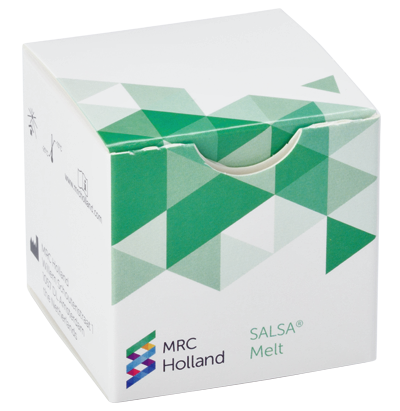Spinal muscular atrophy (SMA) is a neuromuscular disorder characterised by degeneration of the anterior horn cells of the spinal cord, leading to symmetrical muscle weakness and atrophy. The estimated incidence of SMA is 1:6,000-1:10,000: the second most common lethal autosomal recessive disorder in Caucasians, after cystic fibrosis (Ben-Shachar et al. 2011, Smith et al. 2007). SMA is usually divided into four clinical groups based on age of onset and maximum function obtained.
Two (highly similar) genes play a pivotal role in SMA: SMN1 and SMN2. Most individuals* have two copies of each gene. The SMA region on 5q13.2, containing the telomeric SMN1 and the centromeric SMN2, is a complicated inverted repeat area displaying high instability, leading to frequent deletions and gene conversions. SMN1 and SMN2 can only be distinguished by two single nucleotide differences: one in exon 7 and one in exon 8. The single nucleotide difference between SMN1 and SMN2 in exon 7 affects mRNA splicing in SMN2 resulting in an altered SMN protein with a limited half-life and function.
A total of 95-98% of SMA patients (this percentage is lower in SMA patients from African descent) show homozygous deletion of at least exon 7 of the telomeric SMN1 gene (Labrum et al. 2007). The remaining 3-5% present compound heterozygosity with a point mutation on one chromosome and a deletion/gene conversion on the other. Such a point mutation will not be detected by this P060 SMA Carrier MLPA assay and should be identified by sequencing. In a small number of patients, the SMN1 defect is a copy number change of SMN1 exons 1-6 which can be detected with the SALSA MLPA Probemix P021 SMA (Arkblad et al. 2006).
The great majority of SMA carriers can be identified by the presence of a single SMN1 exon 7 copy. The one copy frequency in the US is estimated to be 1:37 for Caucasians, 1:46 for Ashkenazi Jews, 1:56 for Asians, 1:91 for African-Americans and 1:125 for Hispanics. Approximately 3-8% of SMA carriers (27% of African Americans) have one functional and one defective SMN1 copy, or have two SMN1 copies on one chromosome and 0 copies on the other (2+0) (Alias et al. 2014, Ben-Shachar et al. 2011, Hendrickson et al. 2009, Miskovic et al. 2011, Smith et al. 2007). Dosage analysis cannot determine the difference between '1+1' and '2+0' (silent carriers) arrangements. Both situations are simply detected as having two SMN1 copies leading to false negative results. A thorough molecular analysis should be performed in parents of SMA patients who have two SMN1 copies. Luo et al. (2014) reported that a haplotype block specific for SMN1 duplications is present in a large percentage of Ashkenazi Jews and in other ethnic groups. Identifying this haplotype, e.g. with the use of the SALSA MLPA Probemix P460 SMA (Silent) Carrier, will, depending on ethnicity, increase the chance of identifying silent carriers.
The SMN2 copy number is very variable with only 60-70% of individuals having two copies. Provided that at least one functional SMN1 copy is present, complete absence of the centromeric SMN2 gene has no known clinical consequences. More information on spinal muscular atrophy can be found in http://www.ncbi.nlm.nih.gov/books/NBK1352/.
*In people of African descent, the percentage of SMA patients with a homozygous exon 7 deletion may be lower (Labrum et al. 2007). This assay does not detect other causes of SMA such as pathogenic point mutations.






